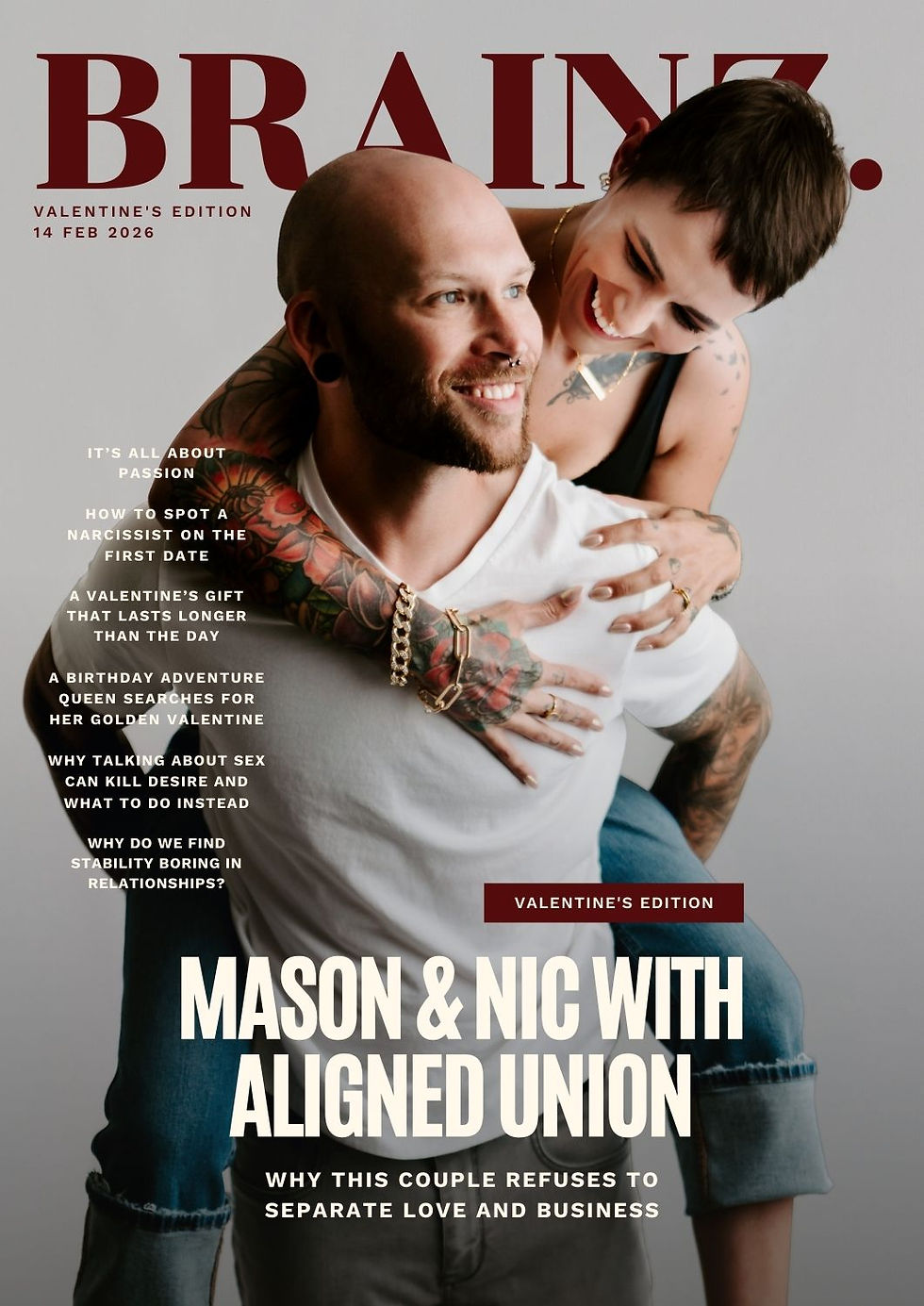Top 10 Tips To Change Your Negative Self-Defeating Habits
- Jul 4, 2023
- 4 min read
Updated: Mar 28, 2024
Written by: Dr. Christine Sauer, Executive Contributor
Executive Contributors at Brainz Magazine are handpicked and invited to contribute because of their knowledge and valuable insight within their area of expertise.

As a trained physician, naturopath, and brain health coach, I walked my talk through the valleys of mental illness and now am blessed to be able to guide others to their goal of contentness, mental well-being and eventually even happiness. In my work, I aim to help others understand and manage the often misunderstood and hidden monsters of depression and anxiety. Most people afflicted by these conditions could benefit from what we could call "Natural Approaches to Managing Depression and Anxiety". In this article, I am exploring 10 ways to replace negative self-defeating habits with healthier ones.

1. Acknowledge your inner world
Depression and anxiety often sprout from deep-rooted beliefs and emotions, mostly negative self-perceptions, fears, or feelings of inadequacy. Recognizing these feelings can be the first step in your path towards managing them naturally. Interestingly, research indicates that our mental dialogue significantly impacts our performance and overall mental health. Therefore, take a moment right now to introspect and identify any underlying negative beliefs that could be feeding your anxiety and depression.
2. Identify your anxiety and depression patterns
Before we can tackle these mental health challenges, it's essential to understand their manifestations in our daily lives. Negative self-talk, procrastination, or self-sabotage can be manifestations of these conditions. Identifying these patterns is the first step towards reshaping them into more positive, health-promoting behaviors.
3. Overcome negative self-talk
Negative self-talk is a common thread in depression and anxiety. We all encounter negative self-talk, if we just listen deeply enough to our own thoughts. So, it's crucial to consciously recognize and challenge these negative narratives. Counter them with instances from your life that contradict these narratives. Maintaining a record of your accomplishments can serve as a handy tool to challenge these thoughts when they arise.
4. Develop self-awareness
By becoming more aware of our thoughts, emotions, and behaviors, we can recognize when and why we engage in negative patterns. Keeping a mental health and thought journal can be an excellent way to foster this awareness, enabling you to pinpoint triggers and understand your reactions better.
5. Cultivate Positive Behavior
One of the most effective strategies for managing depression and anxiety is replacing self-defeating habits with positive ones. If procrastination plagues you, consider using time management techniques like the Pomodoro method. Celebrate every little progress you make – these victories, no matter how small, can empower you to tackle larger tasks.
6. Set achievable goals
Setting unattainable goals can amplify feelings of anxiety and depression. Dream big to get the direction right, and then set achievable and value-aligned goals. This will boost your self-esteem and motivation. Try breaking down bigger tasks into smaller, manageable steps, and remember to acknowledge each achievement.
7. Implement mindfulness techniques
Mindfulness techniques such as meditation, Havening Techniques® and deep breathing can help you stay present and conscious, offering a natural way to manage anxiety and depression. When you're fully present, you're less likely to engage in self-defeating behaviors, fostering healthy mental habits.
8. Practice self-reflection
Regular self-reflection is vital for lasting change. Consider keeping a self-reflection journal to monitor your progress and identify any recurrent challenges. Understanding your patterns is key to altering them and establishing healthier habits. A good coach will hold the mirror to yourself and help you to reflect more accurately and progress towards your goals instead of going in circles.
9. Nurture self-compassion
Treating ourselves with kindness, especially during times of struggle, is a crucial aspect of managing depression and anxiety. Recognize that change is a journey, and each step, no matter how small, is a step forward. Practice being gentle with yourself as you navigate this path.
10. Create a support network
Support from loved ones, a good life or brain/mental health coach or a professional therapist can make your journey towards mental health less challenging. Never hesitate to seek help and encouragement. Offering support to others can also provide unique insights into your own experiences.
Learning to manage your depression and anxiety is a process, one where understanding and changing your self-defeating habits play a crucial role. Remember, each day is a new opportunity to be your own best advocate and start over to live your best life. You have the power to shape your journey by nurturing positive habits and reducing the symptoms of depression and anxiety naturally. And remember, we're here to support you every step of the way. Reach out to us anytime you need assistance or guidance on your path towards mental well-being.
Let's strive to be our own biggest fans, not just critics. With patience, compassion, and guidance, you can grow through your struggles and lead a meaningful and fulfilling life.
Follow me on Facebook, Instagram, Linkedin, and visit my website for more info!

Dr. Christine Sauer, Executive Contributor Brainz Magazine
Dr. Christine Sauer MD ND is a German-trained physician and naturopath, a Holistic Brain and Mental Health Professional, Coach, and Educator, combining modern science, ancient wisdom, nature, experience, and love. Her own struggles with chronic pain, weight loss, and mental health issues have led her to dedicate her life to improving the brain/mental health and gut health of children, youth, and adults, helping them with brain optimization, positive parenting strategies, and enabling them to lose weight ‒ all with natural means. She is a TEDx Speaker and 1 bestselling author. As “The Doctor who Knows How You Feel,” she is known to make a lasting impression and positive difference in the lives of her clients and followers. Her clients have said that it feels like "magic" to them when their life transforms through Dr. Christine's caring communication.









